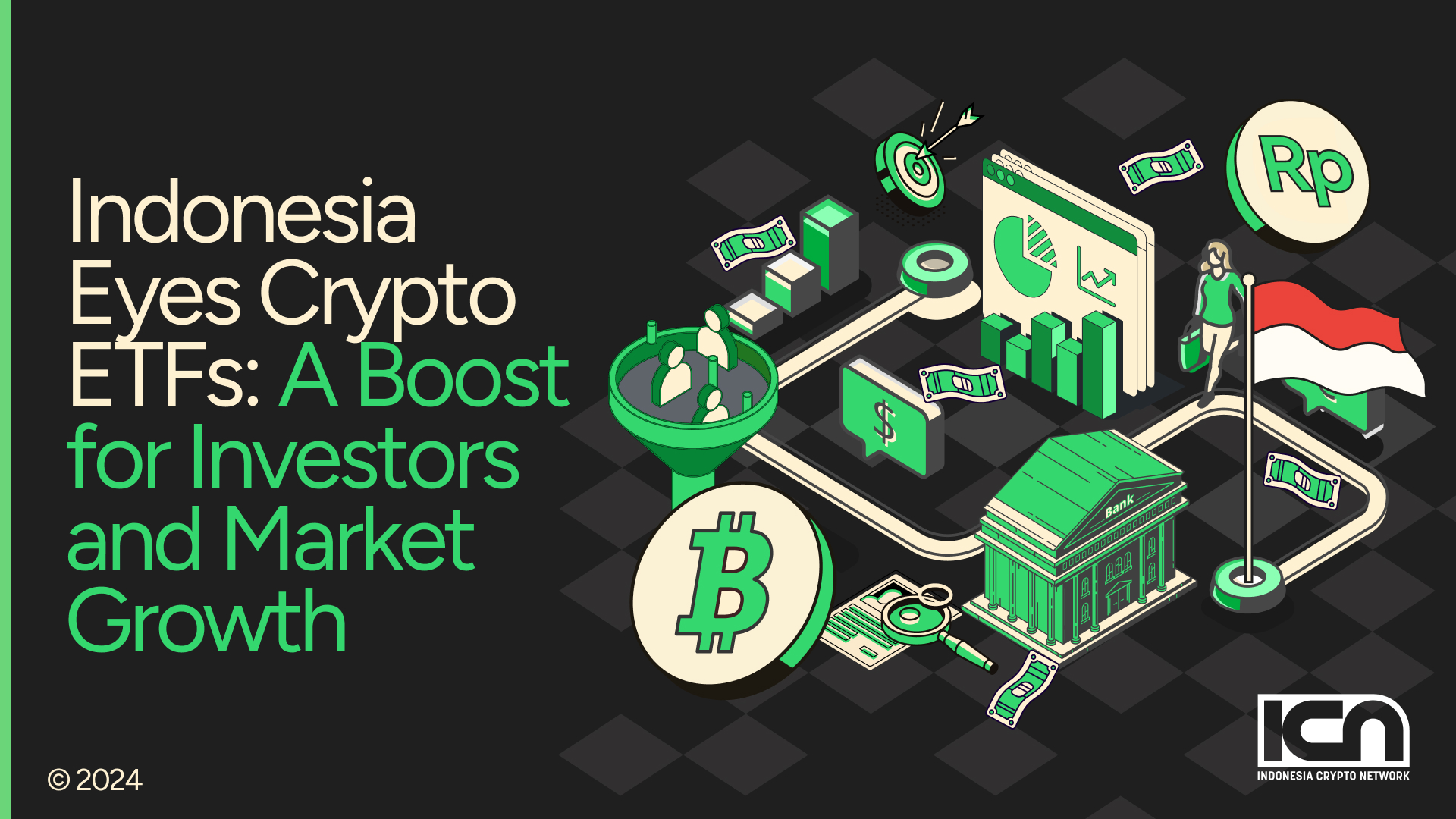Indonesia is inching closer to a new era in financial innovation. The Financial Services Authority (OJK) has confirmed that it is assessing the possibility of launching crypto-based Exchange-Traded Funds (ETFs) as a new investment product on the Indonesia Stock Exchange (IDX). Although still in its early stages, the initiative signals a growing willingness by regulators to bridge traditional finance with the rapidly evolving digital asset ecosystem.
Crypto ETFs are designed to give investors exposure to digital assets—such as Bitcoin—without directly owning or managing them. Structured similarly to mutual funds, these instruments offer a simplified and regulated entry point to the crypto space. This model removes the complexities associated with wallets, custody, and technical management, making it attractive for institutional and retail investors alike.
Read more: OJK launches SPRINT App: A Game-Changer for Indonesian Crypto Market
OJK’s Position: Balancing Innovation with Regulatory Guardrails
Hasan Fawzi, Chief Executive Supervisor for Financial Sector Technology Innovation and Digital Assets at OJK, explained that the agency is working with capital market stakeholders, derivatives players, and OJK’s PMDK division to study this instrument thoroughly.
“We are currently conducting the assessment. Potentially, this could lead to the development of a new regulatory and licensing framework,” he stated.
Hasan noted that the existing ETF regulations might be used as a foundation, but did not rule out the need for tailored rules. “If it turns out that the underlying assets—which are not securities—require something unique or specific, then we may need to make adjustments or improvements to the current regulatory framework,” he added.
Read more: Why Tokens Fail to Get Listed in Indonesia and How to Avoid Mistakes
Industry Optimism and Global Momentum
The initiative has been widely welcomed by the crypto industry. Wan Iqbal, Chief Marketing Officer of Tokocrypto, emphasized that this could be a critical step in expanding crypto adoption among traditional investors.
“OJK’s initiative sends a strong signal that Indonesia is ready to take a more strategic position in the global investment landscape. A crypto ETF can bridge the conventional capital market and the growing digital asset ecosystem,” Iqbal said.
He believes that crypto ETFs will enhance legitimacy for digital assets, reduce technical friction for newcomers, and provide regulated options for portfolio diversification.
Indonesia’s move is also seen as a response to global momentum, particularly the approval of spot Bitcoin ETFs in the United States by the SEC in early 2024. These ETFs, which track the actual price of Bitcoin, have already begun changing public perception and institutional behavior.
Introducing crypto ETFs in Indonesia could unlock a range of benefits—from boosting market liquidity to offering safer and more accessible pathways for digital asset exposure. It would also mark a significant step in aligning Indonesia’s regulatory framework with global financial trends. However, its success will depend on how regulators manage risks, design investor protections, and collaborate with industry players during implementation.
The evaluation is still ongoing, but if OJK gives the green light, we could see the start of a new chapter in Indonesia’s capital markets—where crypto isn’t just tolerated, but integrated, regulated, and trusted.
Looking to understand or participate in Indonesia’s evolving crypto landscape?
ICN works closely with regulatory bodies and capital market stakeholders to guide businesses through market entry, compliance, and long-term growth. Let’s talk strategy—contact us today.




